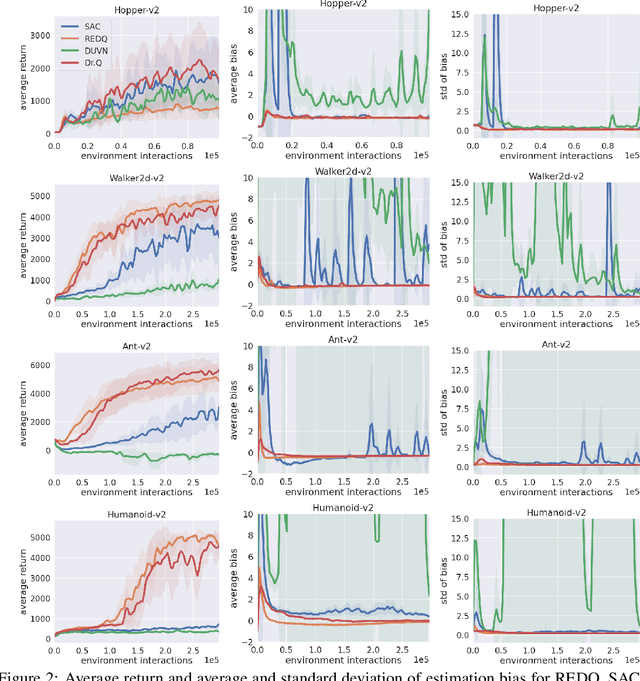Dropout Q-Functions for Doubly Efficient Reinforcement Learning
Paper and Code
Oct 05, 2021



Randomized ensemble double Q-learning (REDQ) has recently achieved state-of-the-art sample efficiency on continuous-action reinforcement learning benchmarks. This superior sample efficiency is possible by using a large Q-function ensemble. However, REDQ is much less computationally efficient than non-ensemble counterparts such as Soft Actor-Critic (SAC). To make REDQ more computationally efficient, we propose a method of improving computational efficiency called Dr.Q, which is a variant of REDQ that uses a small ensemble of dropout Q-functions. Our dropout Q-functions are simple Q-functions equipped with dropout connection and layer normalization. Despite its simplicity of implementation, our experimental results indicate that Dr.Q is doubly (sample and computationally) efficient. It achieved comparable sample efficiency with REDQ and much better computational efficiency than REDQ and comparable computational efficiency with that of SAC.
 Add to Chrome
Add to Chrome Add to Firefox
Add to Firefox Add to Edge
Add to Edge